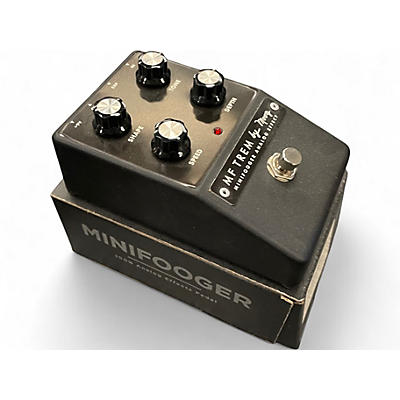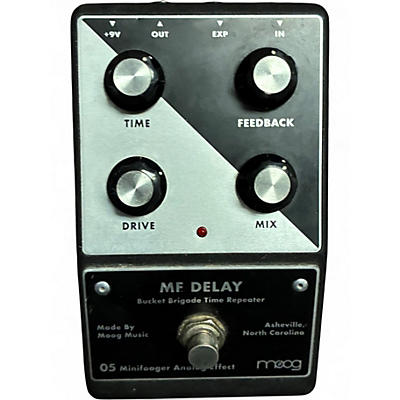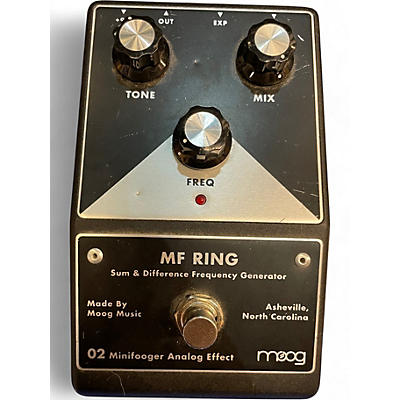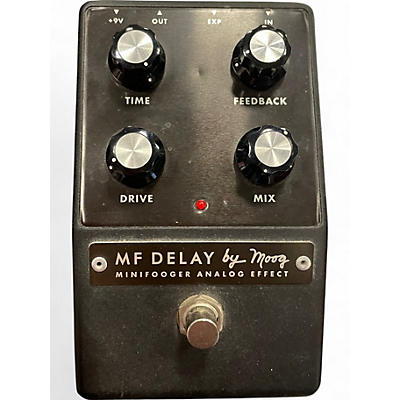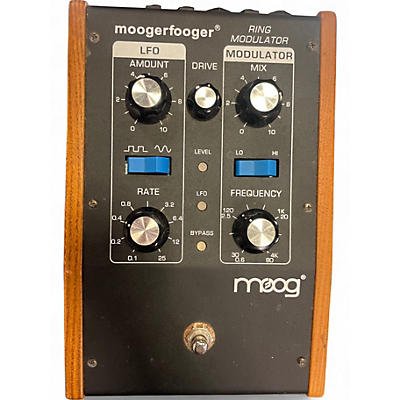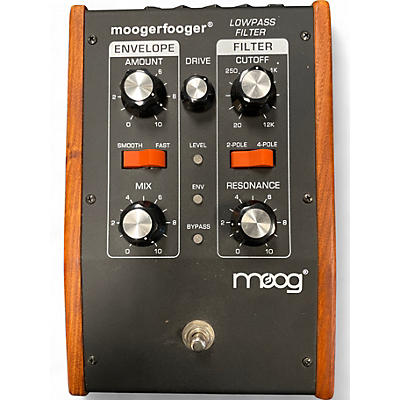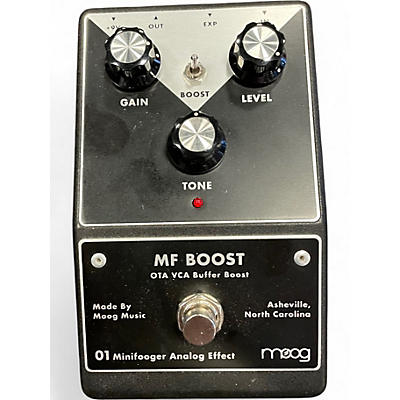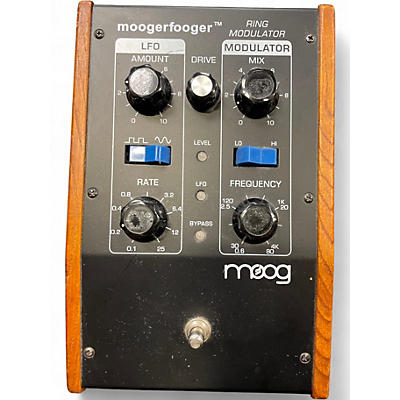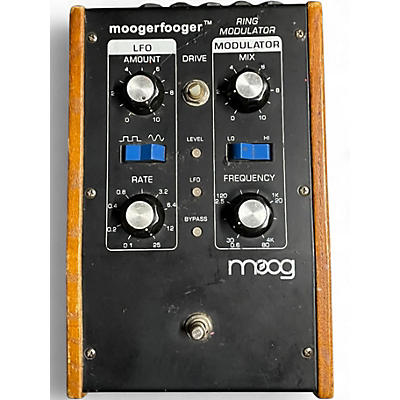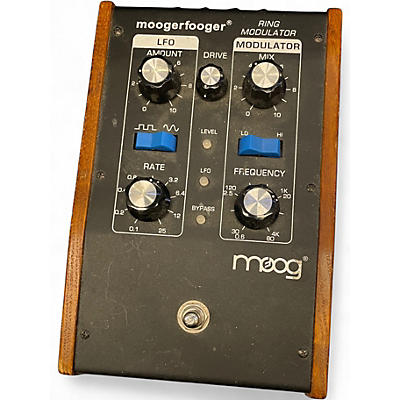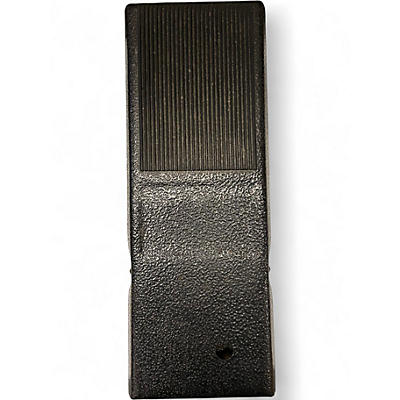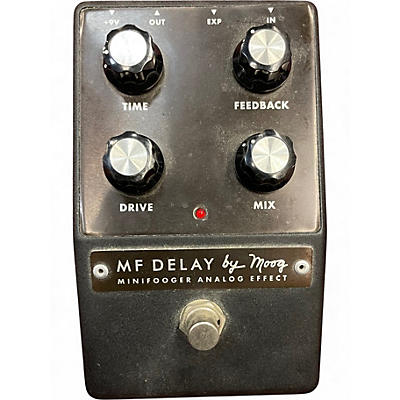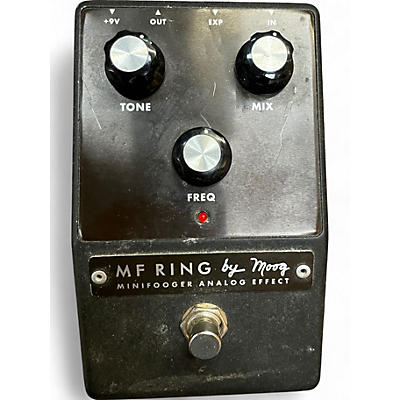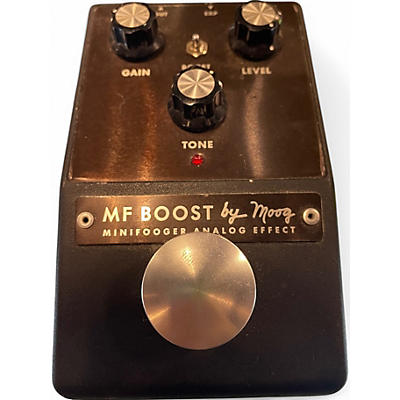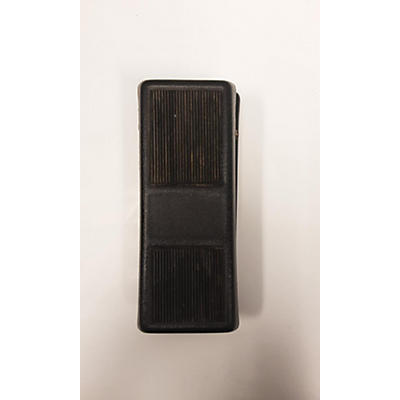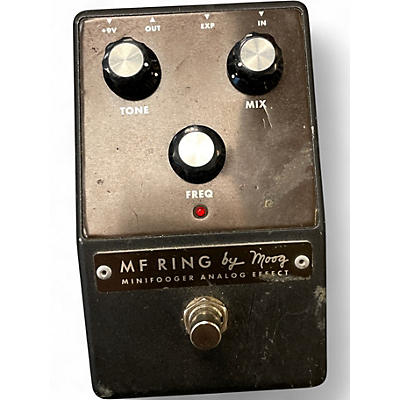Ever since Robert Moog introduced his first synthesizer prototypes in 1964, his name has been synonymous with electronic music. The Moog company may have had its ups and downs, but after a few transformations it's going stronger than ever. When he left the struggling company in 1977, Robert Moog started his own company called Big Briar, and it was under this name that he created his first "Moogerfooger" effects pedal. Big Briar became Moog Music once again in 2002 after Bob Moog got back the rights to the name—unfortunately, he passed away three years later, but his name and the reputation attached to it have survived.
Full-sized Moogerfooger pedals look and perform like miniature, modular synthesizers, with walnut edges that stick to the vintage look of the original Moog synths. If you're looking for something a little more low-profile, you might go for the "Minifooger" instead; these are a more typical stompbox size so they're a bit easier to fit onto your pedalboard. Moog also makes a rocker-style expression pedal, the EP-3, which includes an adjustable output, reversible polarity and works with any keyboard, synthesizer or pedal—including Moogerfoogers and Minifoogers—that supports expression or CV input.
Most Moog effects pedals take advantage of analog design to deliver outstanding tone reminiscent of their classic synthesizers. Some of the more standard pedal varieties in the Moogerfooger lineup include the MF-103 phaser and MF-108M "Cluster Flux" flanger. On the Minifooger side of things, you've got options like the MF Drive, an overdrive pedal with a ton of Moog-specific features, and the MF Trem for tremolo buffs. Looking for a ring modulator effect? Take your pick: the Moogerfooger MF-102 or Minifooger MF Ring. If you want something to bridge the gap between analog and digital, however, take a look at the MF-105M MIDI MuRF pedal. First launched in 2009, this analog filter effects pedal is an excellent choice for bass and guitar.
Whichever Moogerfooger or Minifooger you decide to try, it's a safe bet that you'll come out satisfied. Descending from Robert Moog's very first synthesizer designs, today's Moog effects pedals have about 50 years of history and experience behind them. All you have to do is listen to one of these pedals at work to understand what a benefit that is.





































































































































